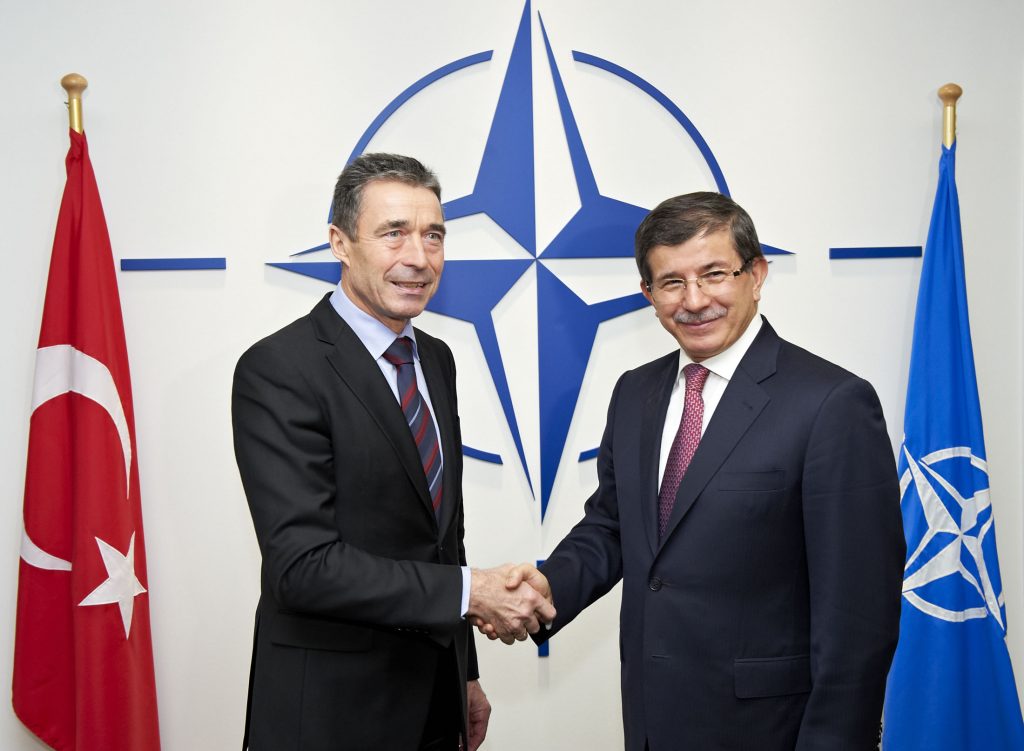
From Adam Entous, Wall Street Journal: The U.S.’s Syria strategy is emblematic of the administration’s policy of limiting Washington’s role as global policeman. In NATO’s campaign against Libya’s Col. Moammar Gadhafi, Mr. Obama insisted European powers play a leading combat role. After French forces went into Mali to fight al Qaeda linked forces in January, Mr. Obama sent cargo and refueling planes to help Paris but no fighter jets or armed drones. . . .
America’s hands-off policy was dealt a shock on June 22 when a Turkish reconnaissance plane was shot down by Syrian air defenses.
Turkish Prime Minister Recep Tayyip Erdogan raised alarms in the U.S. by suggesting that Turkey might invoke NATO’s Article V, which says alliance members should treat an attack against one as an attack against all, potentially triggering a military response.
Neither the U.S. nor NATO was interested in rushing to Article V, a message that was conveyed to the Turks, according to NATO diplomats. Turkey instead invoked Article IV, which triggered emergency consultations but no further action. And U.S. Navy Adm. James Stavridis, the North Atlantic Treaty Organization’s supreme allied commander, had NATO’s defense plan for Turkey rewritten to reassure the Turks and deter Damascus from widening the conflict.
NATO was so wary of getting pulled into Syria that top alliance officials balked at even contingency planning for an intervention force to protect Syrian civilians. "For better or worse, Assad feels he can count on NATO not to intervene right now," a senior Western official said. . . .
Advocates of intervening faced another hurdle: administration lawyers. Lawyers at the White House and departments of Defense, State and Justice debated whether the U.S. had a "clear and credible" legal justification under U.S. or international law for intervening militarily. The clearest legal case could be made if the U.S. won a U.N. or NATO mandate for using force. Neither route seemed viable: Russia would veto any Security Council resolution, and NATO wasn’t interested in a new military mission.
Administration lawyers honed a third legal justification: collective self-defense, according to current and former officials involved in the deliberations. To work, however, Syria would have to attack one of its neighbors. Besides occasional errant Syrian artillery shells that veered into Turkey, Damascus kept a lid on cross-border tensions to avoid provoking a response.
In August, [Secretary of State Hillary] Clinton flew to Istanbul, prepared to look at a no-fly zone, which Ankara earlier had floated to NATO as an option. But Turkish officials told their American counterparts later in August that they weren’t prepared to move forward with a no-fly zone, and the option—already opposed by the U.S. military because of concerns about Syria’s air defenses and Russia’s reaction—died there, U.S. officials say. (photo: NATO)
Image: nato%201%2019%2012%20Rasmussen%20Davutoglu.jpg
